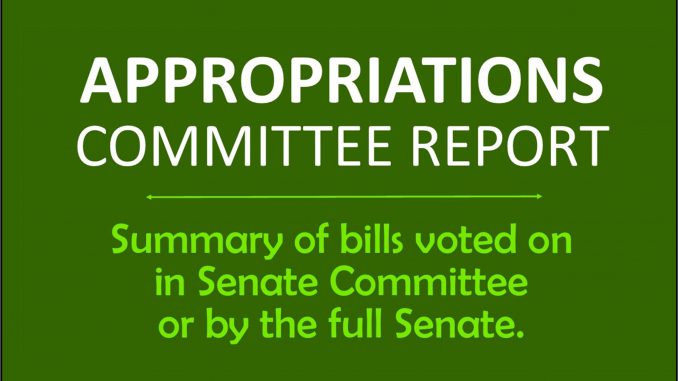
On this page
COMMITTEE ACTION:
SF 2369/SF 2349– Private school vouchers, public school penalties, new testing requirements
SF 2369 is a Governor’s education bill to take money away from public schools by providing private school vouchers.
Students currently in a public-school district, if their annual household income is below 400% poverty ($106,000/family of four) or the student has an Individualized Education Program (IEP) or will be enrolling in kindergarten, can receive vouchers to attend a private school. There is a maximum of 10,000 vouchers/scholarships every year.
Private school vouchers are provided a standing unlimited appropriation to pay the amount necessary for all scholarships approved. Vouchers will be 70% of the state cost per pupil (SCPP). Estimated private school voucher fiscal impact is $53 million annually, without factoring in administration/contract costs to implement program.
The bill prioritizes nonpublic school students over public school students by allowing “qualified educational expenses” to not only include tuition and fees at a nonpublic school, but also payments for educational therapies, including tutoring or cognitive skills training; software and materials; tuition or fees for nonpublic online education programs; tuition for vocational and life skills education;services for pupils with disabilities, including the cost of paraprofessionals and assistants who are trained in accordance with state law; standardized test fees; advanced placement examinations or postsecondary education admission or credentialing; and other expenses incurred by the parent or guardian that are directly related to the education of the pupil at a nonpublic school.
The cost of one computer or other portable computing device will be allowed as a qualified educational expense for a pupil if used primarily for the educational purposes. The bill does not require a private school to modify its academic standards for admission or educational program to receive public voucher payments. It actually specifies that this does not expand the authority of the state to impose any new regulations on the private school and any rules adopted by the Department of Education to implement private school voucher program will not impose an undue burden on a private school or they will be considered invalid. Voucher are not subject to state tax retroactively applicable to the 2022 tax year.
The bill also creates a supplement fund in the state treasury with a standing unlimited appropriation that will pay 30% percent of SCPP (approximately $2,200) of each private school voucher to the smallest school districts. For example, if 10,000 private school students receive a voucher, this would be $22.7 million to the smallest 102 school districts across the state, or $220,000 per school district with 500 students or less.
The bill increases the expense and work of public schools by requiring searchable databases of all lesson plans, textbooks, books, articles, videos and other educational materials used in each class and grade level. There is no similar requirement for nonpublic schools. The bill withholds state funding for each day a school district is in violation of these requirements. The bill requires student to pass with 70% the most recent version of theU.S. citizenship and immigration test before being allowed to graduate.
The bill changes athletic eligibility rules to allow siblings to participate in varsity athletics without a waiting period if they open enroll with a sibling for “good cause.” Finally, the bill removes the requirement that a teacher librarian should have a master’s degree.
[2/28: 13-8, party-line (No: Democrats)]
